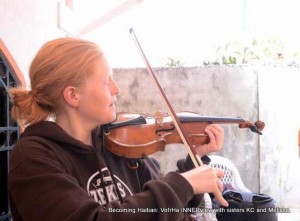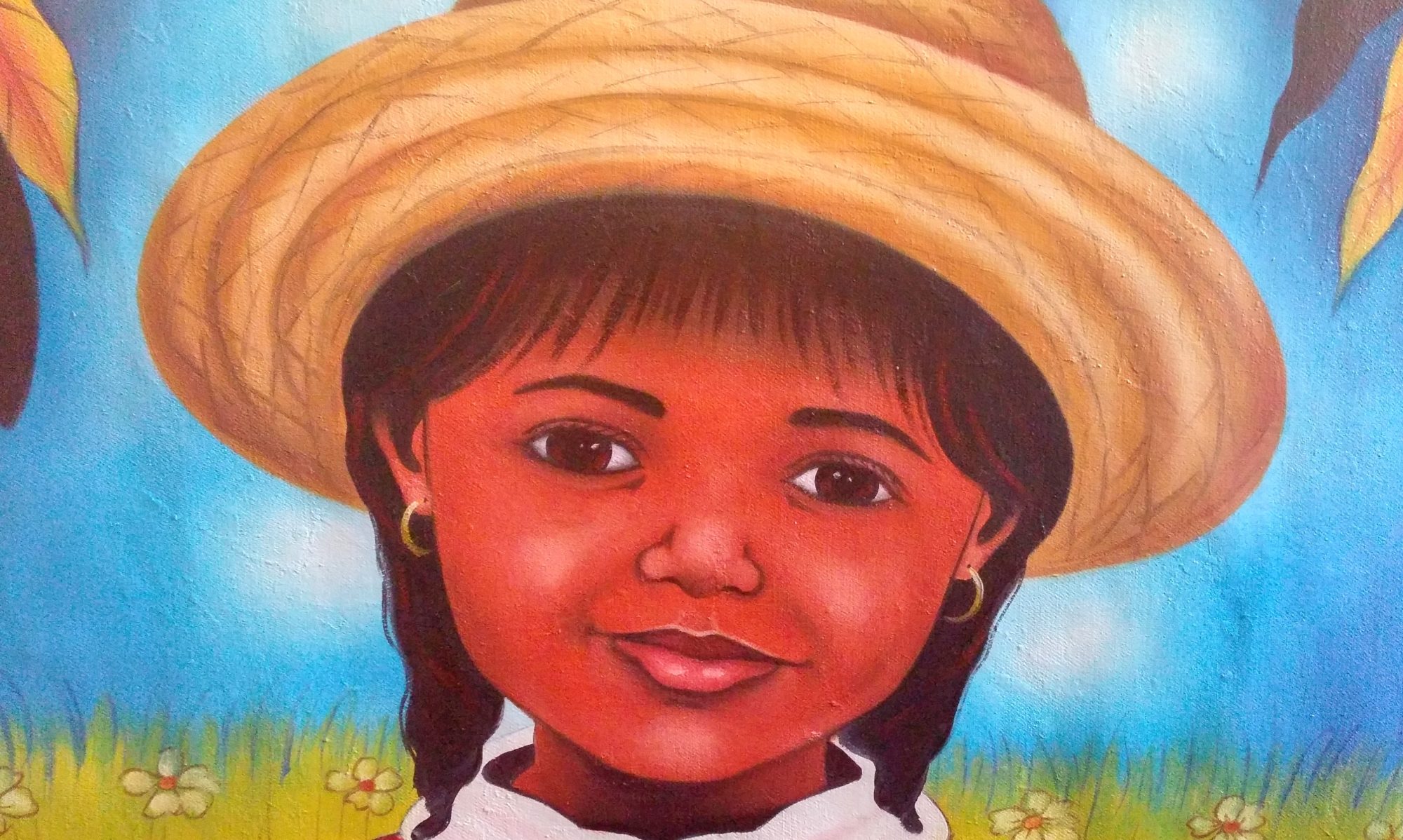 KC has lived in Haiti since 2004. Melissa, her sister, dreams of the day when she and KC will stand side by side on Haitian soil. Melissa is unable to travel due to serious health issues. “Haiti transforms people,” Melissa says. “KC is not the same person she was before she went to Haiti. So much about her has changed. I would love to experience that transformation. I would love to put my own feet on Haitian soil and feel what KC must feel when she’s there.”
KC has lived in Haiti since 2004. Melissa, her sister, dreams of the day when she and KC will stand side by side on Haitian soil. Melissa is unable to travel due to serious health issues. “Haiti transforms people,” Melissa says. “KC is not the same person she was before she went to Haiti. So much about her has changed. I would love to experience that transformation. I would love to put my own feet on Haitian soil and feel what KC must feel when she’s there.”
KC and Melissa are at my house. I was supposed to make Haitian food, but time did not allow it. We’re having pizza instead.
KC’s eyes are not committed to anything in the present space. “I cannot live in the United States anymore,” she blurts out suddenly. Unexpectedly. “Haiti is the place I was born to call home.” She repeats the words in Haitian Kreyòl–just in case I had failed to understand her the first time: “Mwen pa vle rete Ozetazini ankò. Se Ayiti ki lakay mwen.”
Melissa blinks hard. “Haiti has seeped into our family’s veins,” she says resignedly. “I can’t imagine a time when it will not be a part of our lives. I just want to be with KC there. One day. I want to go to Haiti, too.”
KC’s words come hurriedly, like someone who is late for a very important appointment. In her mind she’s ready to get on that plane and fly back to the place she calls home.
She says: “I am like the product of two plants that were grafted together. Once the new plant takes on a life of its own, it can never go back to what it was before. It did not exist before. The consequence cannot be undone. That is how I feel about Haiti. We’ve been grafted together. The person I am today is the result of that graft. In a sense, Haiti and I are now one. That cannot be undone.”
“KC, I know you’re happy in Haiti,” Melissa says. “I know you love it there. But isn’t it hard to leave your blood relatives for extended periods of time? Don’t you miss us when you are that far away?”
“The reality is that I don’t miss anything that’s in the United States.”
Melissa flinches. “I am not talking about the United States. I mean, don’t you miss the people in the house we live in? Your family’s house? Don’t you miss your family?”
“I am not the person I was before I moved to Haiti seven and a half years ago,” KC explains. “Besides, Haiti teaches you to accept what you have. When I am in Haiti, I am content to be with the family I have there. When it’s time to come to the United States, I come. Then, I leave. But I don’t end up missing people, because I know the reality of where I am.”
Melissa reclines in the chair. She doesn’t appear to be as nervous as before. There’s a flash of color on her face now. She clears her throat like someone stalling for time. “KC, you said when you first went to Haiti there was a constant longing in your heart.”
KC doesn’t really shrug her shoulders, it only looks that way. “Of course, there’s that longing of the heart. . .” she adds.
“You said you missed your home in the States. You even said you had to push through that sadness. You had to force yourself to stay. Don’t you feel that way anymore?” Melissa’s voice weakens.
KC must have asked herself that same question many times; her answer comes fast: “That was in the very beginning. I don’t feel that way anymore. Sitting here right now is not what I want. I’d much rather be in Haiti. That’s where my heart is. I have to be where my heart is. Or else I don’t feel whole.”
Melissa gives a sisterly smile and shakes her head in a slightly mournful way. Even though they’re sitting on the couch next to each other, a part of KC remains overseas, unreachable.
KC bites her pizza. “I learned how to make diri kole now. I got a great recipe from a friend. I’m still working on how to make pate.” She drifts off into her own distant world.
“See what I mean,” Melissa gestures wildly. “I have to go to Haiti, too. That’s all my sister thinks about. I want to feel what she feels. I want to feel transformed, too.”

